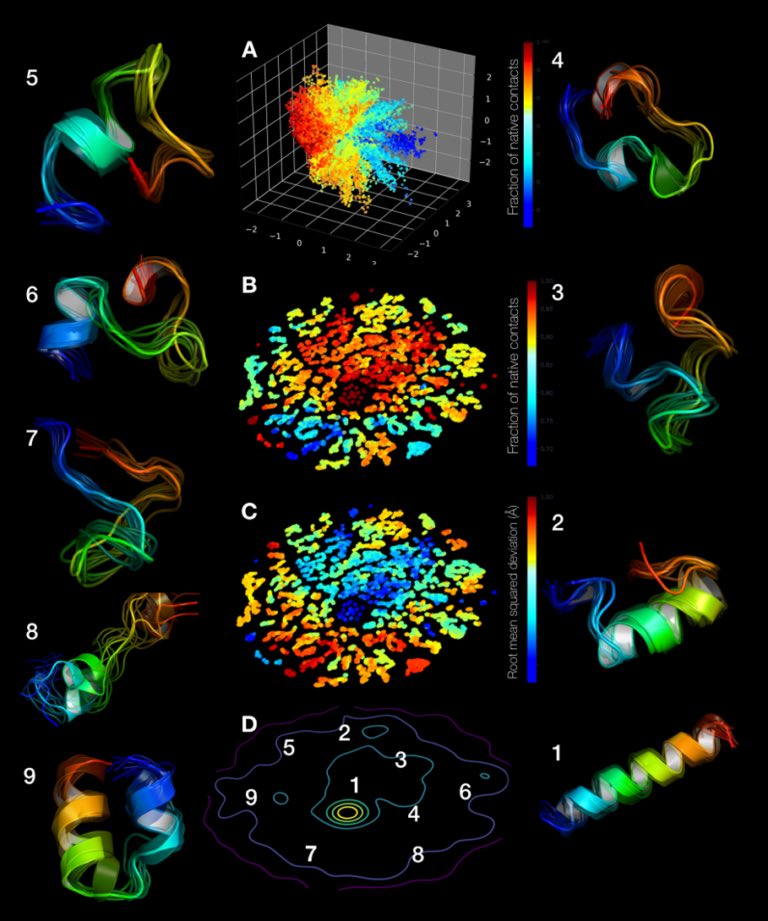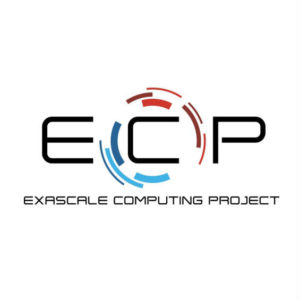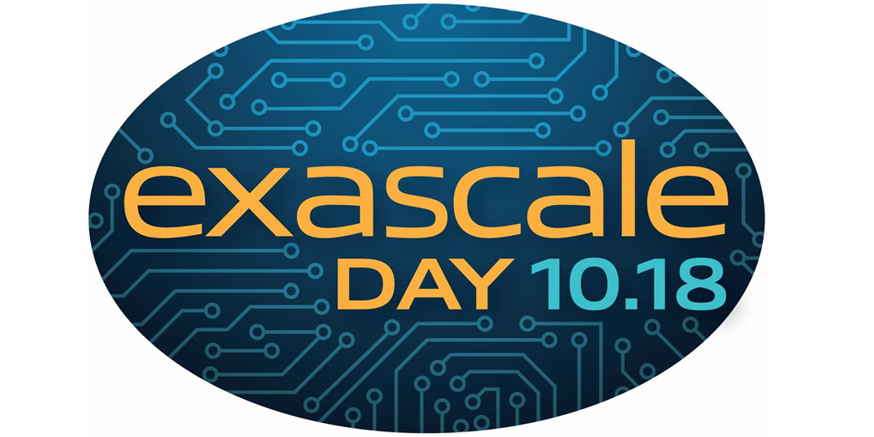
Using CANDLE deep learning to extract protein folding intermediate states. | National Cancer Institute
As part of the Department of Energy’s role in the fight against cancer, scientists are building tools that use supercomputers to solve problems in entirely new ways. Deep learning puts artificial intelligence to use to discover the complex, often unexpected, correlations hiding within big data. Cancer research provides a complex deep learning challenge that enables DOE to develop new supercomputing capabilities that will, in turn, help scientists address challenges in national security and science.
The CANcer Distributed Learning Environment, or CANDLE, is a cross-cutting initiative of the Joint Design of Advanced Computing Solutions for Cancer (JDACS4C) collaboration and is supported by DOE’s Exascale Computing Project (ECP). CANDLE is building a scalable deep learning environment to run on DOE’s most powerful supercomputers. The goal is to have an easy-to-use environment that can take advantage of the full power of these systems to find the optimal deep-learning models for making predictions in cancer. Eventually, CANDLE can be used to advance other areas of DOE research, such as materials science, cosmology, or climate analysis.
JDASC4C is a collaboration between the National Cancer Institute (NCI) and DOE to develop next-generation supercomputing technology and accelerate cancer research to enable precision medicine. It includes researchers from DOE’s Argonne, Oak Ridge, Lawrence Livermore, and Los Alamos National Laboratories as well as from NCI and the Frederick National Laboratory for Cancer Research. JDACS4C includes three pilot projects which focus on finding computational solutions to challenges in cancer research at the cellular, molecular, and population levels. All three pilot projects serve as test cases to drive the development of CANDLE, and the cooperation between AI experts and cancer researchers ensures that CANDLE is accessible and well-tuned to the pilots’ scientific goals. Collaboration across the pilot teams allows the researchers to dive into solving shared technical challenges efficiently.
CANDLE is important for the future of deep learning at DOE. More and more DOE projects will start to use deep learning to augment simulation in order to take advantage of the large-scale data that DOE collects. That growth will require hundreds of scientists at each laboratory to be fluent in deep learning research and methods in order to solve large-scale problems on supercomputers. Deep learning is a new type of application for these supercomputers. It has different requirements in terms of how it uses data, how it produces outputs, and how it scales to use many processors than more traditional applications like large-scale simulations. By bringing together top computer scientists from across DOE as well as private industry partners — including NVIDIA, Cray, IBM, AMD, and Intel – CANDLE, as part of ECP, will help ensure that DOE is prepared to take advantage of new technologies as they’re developed.
Currently CANDLE is running on pre-exascale systems equipped with early instances of exascale technologies. DOE developers are using these systems to optimize the CANDLE code and facilitate the transition to a true exascale system, which is expected by 2021. Not only that, but CANDLE is also shaping the design of future exascale systems to ensure they are tailored for deep learning. The combination of exascale systems and deep learning will let scientists solve problems in entirely new ways.
 The CANDLE team is dedicated to widely sharing the tools it develops. CANDLE has been installed on an NCI computing cluster called Biowolf and datasets and code are publicly available through GitHub. An initial version of CANDLE was released in July 2017, which enabled model exploration at scale. Since then, developers have demonstrated deep learning tools that accomplish tasks like extracting information from epidemiological databases and predicting drug response. The team is continuing to refine existing tools and is constantly adding new capabilities to CANDLE. Future updates will add additional deep learning models, improve parallel processing across supercomputer nodes, and create specialized deep learning tools that can guide simulations. These improvements will bring substantial benefits to both the fight against cancer and DOE challenges in science and national security.
The CANDLE team is dedicated to widely sharing the tools it develops. CANDLE has been installed on an NCI computing cluster called Biowolf and datasets and code are publicly available through GitHub. An initial version of CANDLE was released in July 2017, which enabled model exploration at scale. Since then, developers have demonstrated deep learning tools that accomplish tasks like extracting information from epidemiological databases and predicting drug response. The team is continuing to refine existing tools and is constantly adding new capabilities to CANDLE. Future updates will add additional deep learning models, improve parallel processing across supercomputer nodes, and create specialized deep learning tools that can guide simulations. These improvements will bring substantial benefits to both the fight against cancer and DOE challenges in science and national security.
Source: Andrea Peterson and Michael Cooke at the Department of Energy



